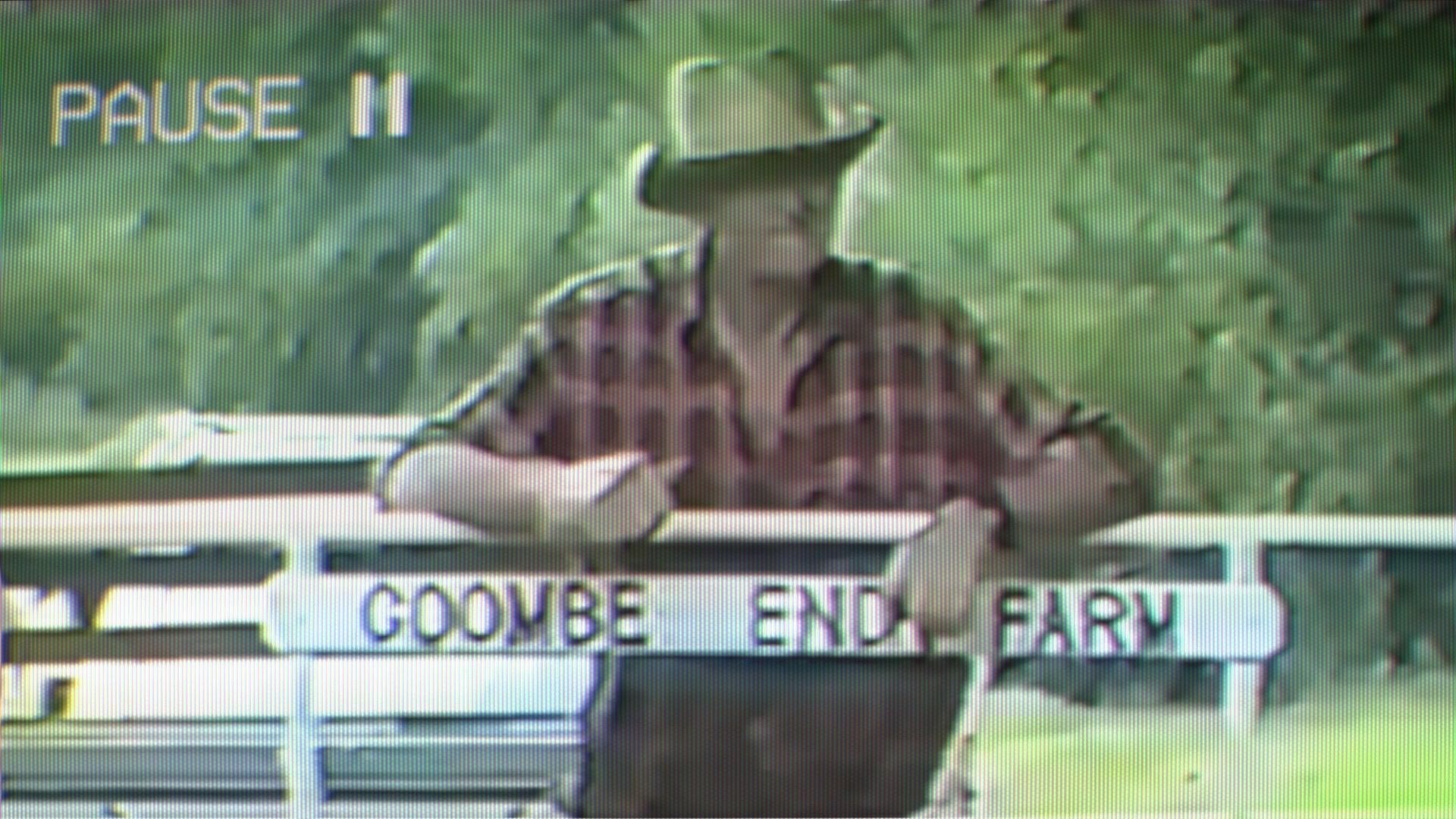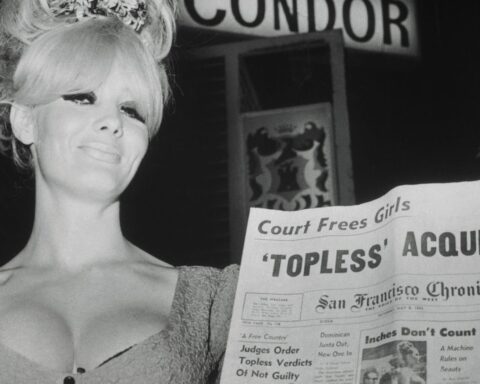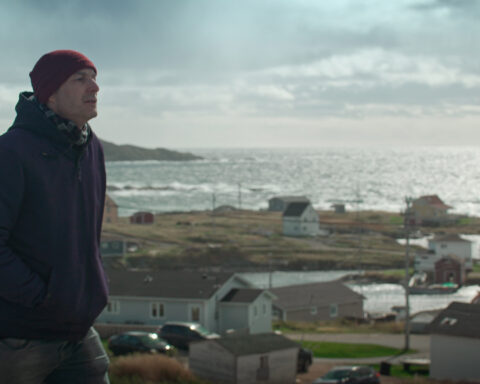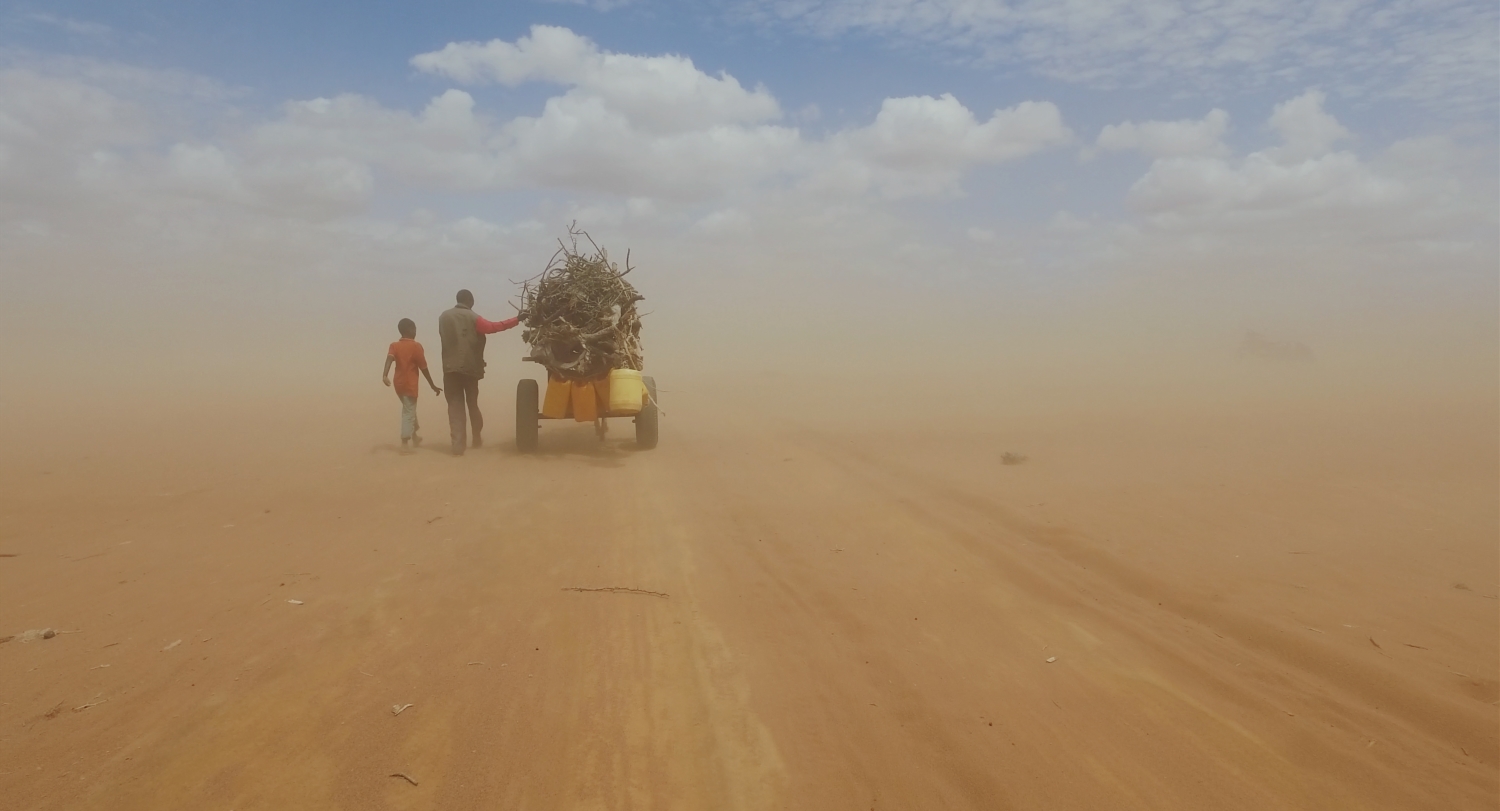A Life on the Farm
(USA, UK, 90 min.)
Dir. Oscar Harding
Program: Documentaries from the Edge
Much like the eccentric protagonist at its core, Oscar Harding’s wonderful documentary A Life on the Farm is full of surprises. While the opening moments lead audiences to believe that they are in for a wildly comedic romp, Harding pulls the rug from under us to reveal a work that is far more nuanced and compassionate.
Charles Carson, a farmer at Coombe End Farm, may not have been a household name outside of his Huish Champflower community in West Somerset, England, but his legacy has spanned the globe. Harding’s own encounter with the farmer, who was a neighbour of his grandparents, came in 2006 at the impressionable age of 10-years-old. While sorting through his deceased grandfather’s things, Harding’s family stumbled upon a mysterious VHS tape Carson had made. On the tape was a weird feature-length home movie that was so bizarre that Harding’s parents shut it off after only ten minutes.
Remembering the experience, Harding found the tape a decade later and decided to see if it was as strange as he recalled. As if walking into a morbid funhouse full of skewed mirrors reflecting a disturbing version of life, the shoddy amateur film was even wilder than he imagined. Filled with multiple scenes of Carson introducing himself and his farm, explicit footage of calves being born, comic bits of horses stealing his hat, and footage of deceased loved ones, the film sent Harding down an obsessive rabbit hole in search of any information he could find about the famer.
To Harding’s surprise, he was not the only one who had encountered Carson’s films. In fact, the farmer had become an unlikely celebrity in the found footage festival circuit. Speaking with those who knew the farmer, authors, VHS enthusiasts, and family friends, A Life on the Farm weaves a captivating quilt of Carson’s fascinating life. Each section adds new and surprising revelation about the unconventional farmer.
In peeling aways the layers of eccentricity, Harding’s film reveals Carson to be a very relatable individual. The odd images in the farmer’s tape were not that of a deranged man, but rather a person trying to connect with others through film. As Harding’s documentary notes at one point, Carson tailored each copy of the film he made to the interest of the neighbour he was giving it to. Dedicating a portion of his adult years to being a caregiver for his ailing parents, and only seeing his wife on weekends, there were long stretches where Carson was isolated on the farm.
Playing around with his camera not only helped to combat the loneliness he felt, but also to work through the sickness and grief he was witnessing firsthand. The camera lens provided a barrier that allowed him a chance to distance himself, even if only for brief moments, from the harsh realities of his existence. In offering a layered observation of Carson’s life, and his mental decline in latter years, Harding’s documentary brings rich nuance to Carson’s often cheerful approach to death on screen. While most would prefer to look away, the farmer knew that confronting our mortality is a painful but vital part of who we are.
It is this reflective exploration on the nature of life and death that make Harding’s documentary so captivating. While there are plenty of humorous moments to be had, A Life on the Farm is a surprisingly poignant celebration of life. The film is a reminder that we all have our individual quirks, especially when it comes to how we utilize and consume various mediums of art, but it is the love for family and our need for connections that bind us all.













